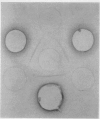Abstract
A procedure employing concentration with Sephadex and analysis by gel diffusion (Ouchterlony) was used to detect the toxins of Clostridium botulinum in foods. Botulinal toxins with toxic levels of 370 to 557 mouse LD50 per milliliter were detected in the food samples. Test results were verified by use of the mouse protection test. Approximately 24 hr were required to complete the entire procedure.
Full text
PDF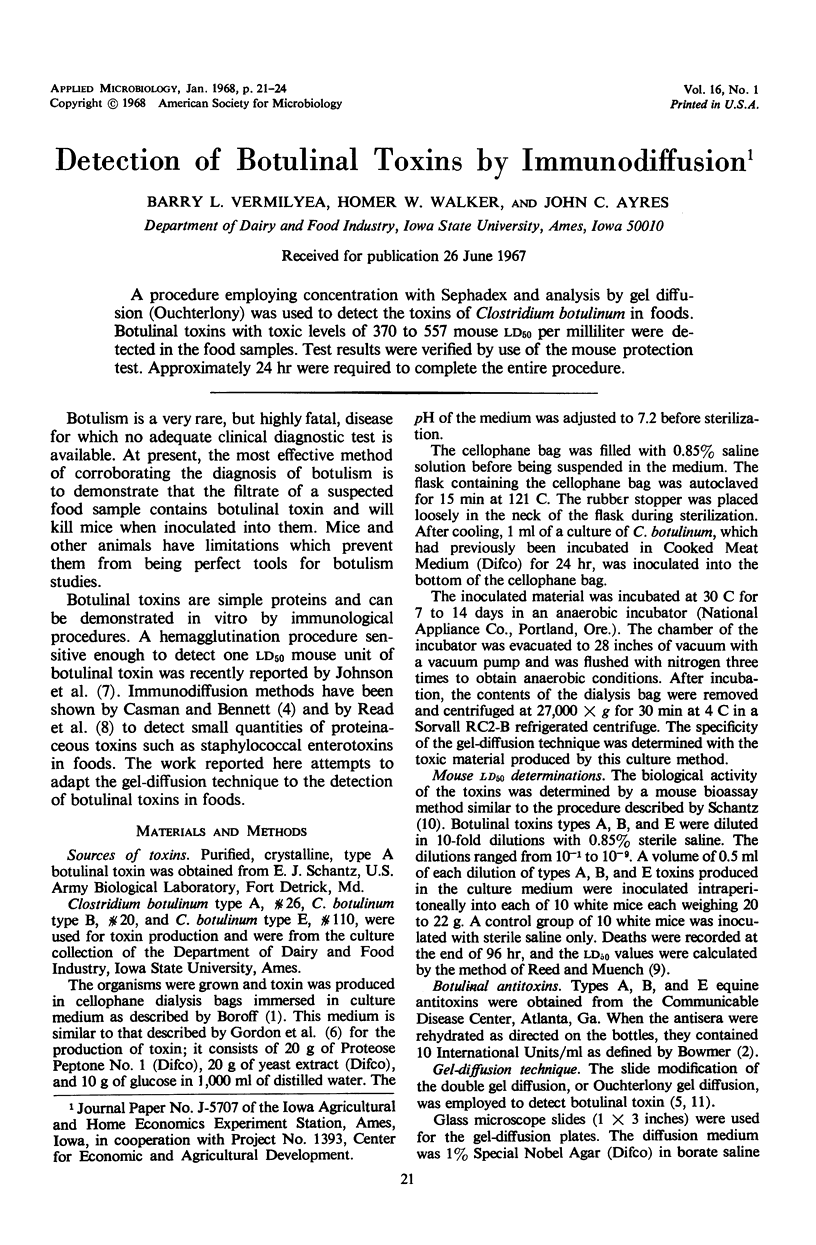
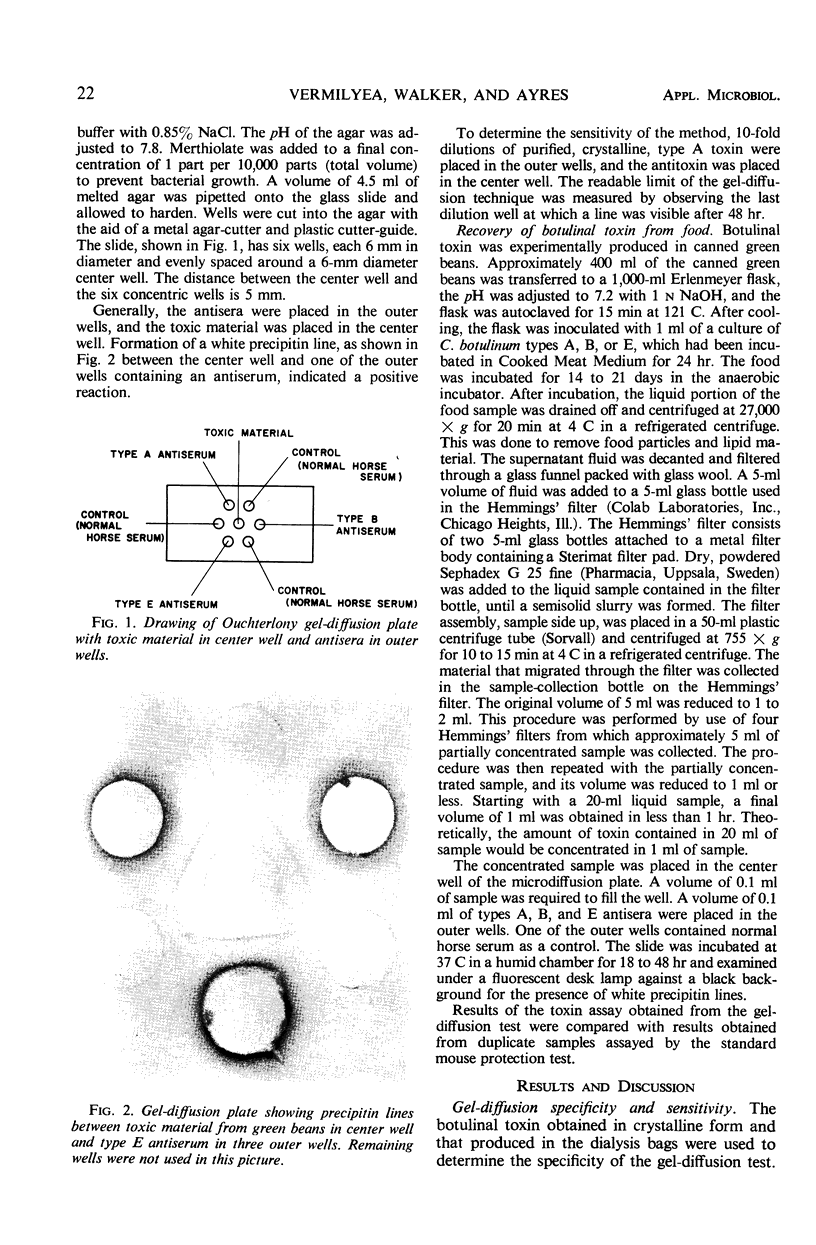
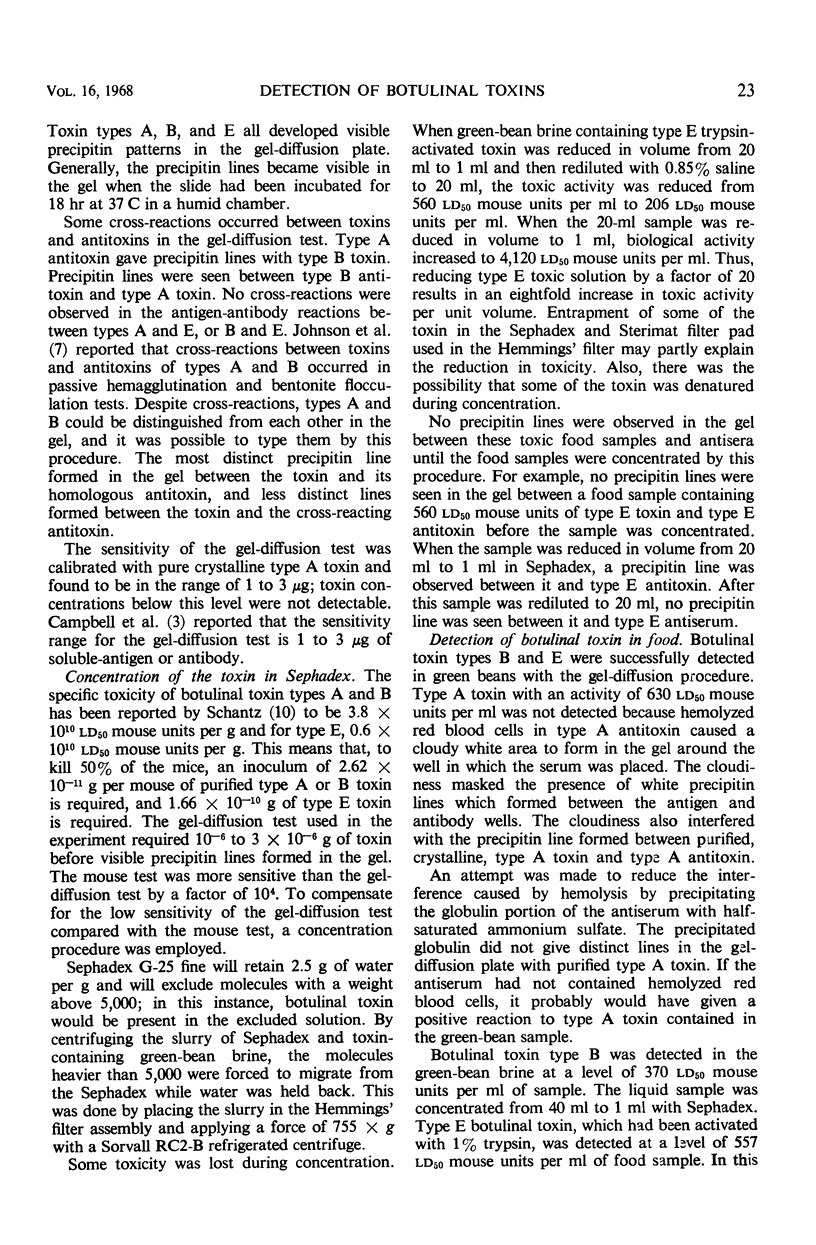
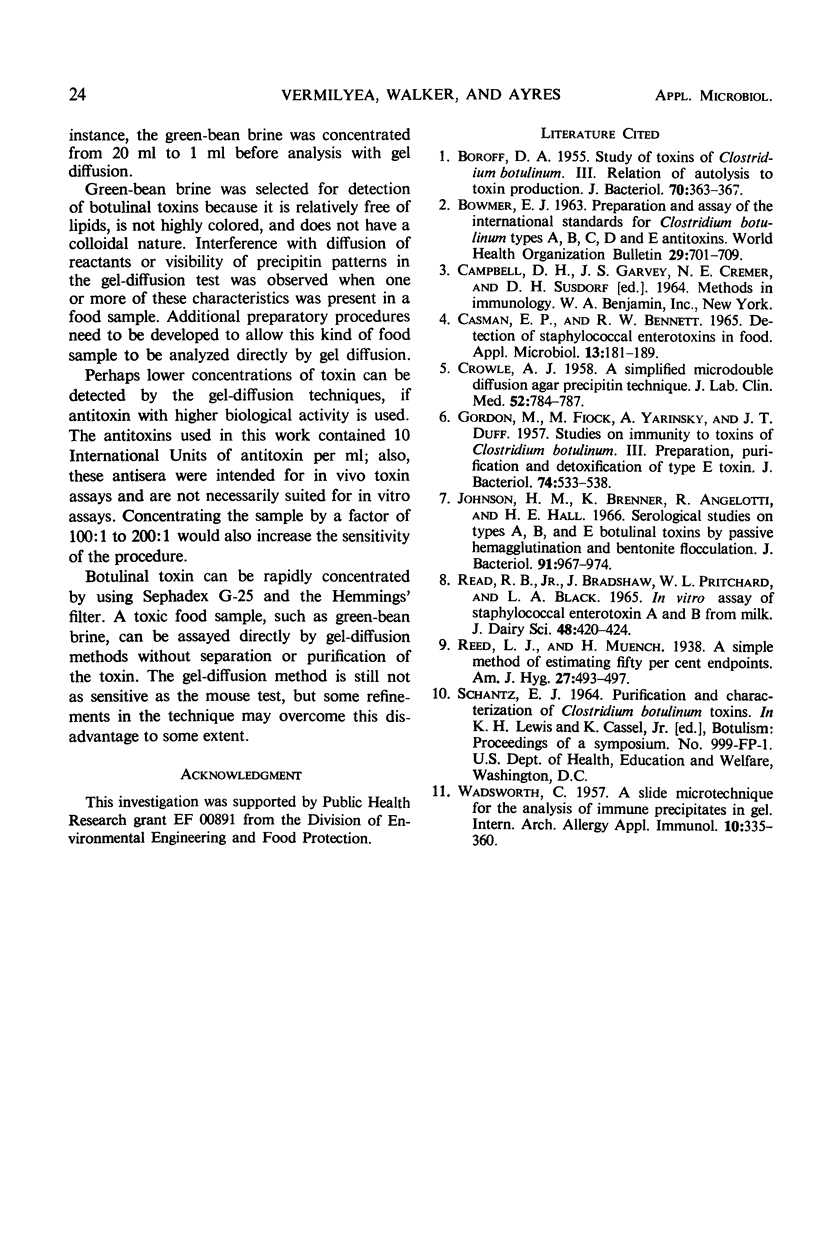
Images in this article
Selected References
These references are in PubMed. This may not be the complete list of references from this article.
- BOROFF D. A. Study of toxins of Clostridium botulinum. III. Relation of autolysis to toxin production. J Bacteriol. 1955 Oct;70(4):363–367. doi: 10.1128/jb.70.4.363-367.1955. [DOI] [PMC free article] [PubMed] [Google Scholar]
- BOWMER E. J. PREPARATION AND ASSAY OF THE INTERNATIONAL STANDARDS FOR CLOSTRIDIUM BOTULINUM TYPES A, B, C, D AND E ANTITOXINS. Bull World Health Organ. 1963;29:701–709. [PMC free article] [PubMed] [Google Scholar]
- CASMAN E. P., BENNETT R. W. DETECTION OF STAPHYLOCOCCAL ENTEROTOXIN IN FOOD. Appl Microbiol. 1965 Mar;13:181–189. doi: 10.1128/am.13.2.181-189.1965. [DOI] [PMC free article] [PubMed] [Google Scholar]
- CROWLE A. J. A simplified micro double-diffusion agar precipitin technique. J Lab Clin Med. 1958 Nov;52(5):784–787. [PubMed] [Google Scholar]
- GORDON M., FIOCK M. A., YARINSKY A., DUFF J. T. Studies on immunity to toxins of Clostridium botulinum. III. Preparation, purification, and detoxification of type E toxin. J Bacteriol. 1957 Oct;74(4):533–538. doi: 10.1128/jb.74.4.533-538.1957. [DOI] [PMC free article] [PubMed] [Google Scholar]
- Johnson H. M., Brenner K., Angelotti R., Hall H. E. Serological studies of types A, B, and E botulinal toxins by passive hemagglutination and bentonite flocculation. J Bacteriol. 1966 Mar;91(3):967–974. doi: 10.1128/jb.91.3.967-974.1966. [DOI] [PMC free article] [PubMed] [Google Scholar]
- READ R. B., Jr, BRADSHAW J., PRITCHARD W. L., BLACK L. A. ASSAY OF STAPHYLOCOCCAL ENTEROTOXIN FROM CHEESE. J Dairy Sci. 1965 Apr;48:420–424. doi: 10.3168/jds.s0022-0302(65)88246-7. [DOI] [PubMed] [Google Scholar]
- WADSWORTH C. A slide microtechnique for the analysis of immune precipitates in gel. Int Arch Allergy Appl Immunol. 1957;10(6):355–360. doi: 10.1159/000228394. [DOI] [PubMed] [Google Scholar]



